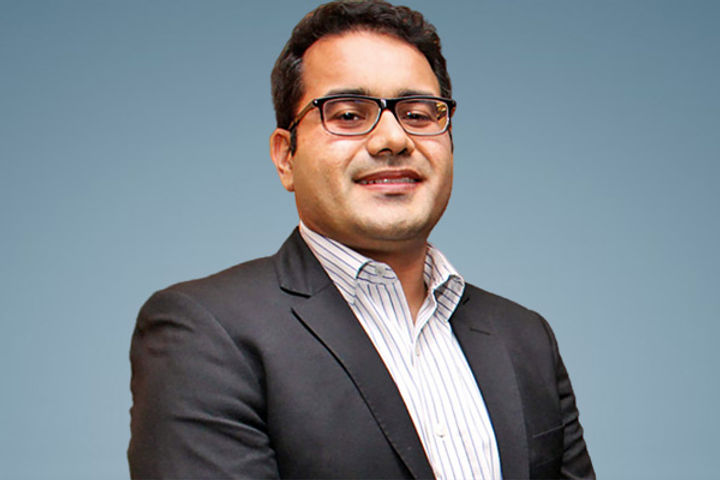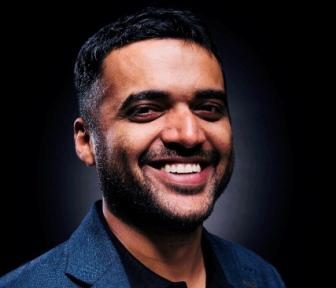Tata Sons Chairman N Chandrasekaran has upped the ante on modernising the group’s diverse consumer businesses by combining digital assets across various businesses under a new entity, as behemoths such as Amazon and Mukesh Ambani-led Reliance Industries pile into the country’s fledgling ecommerce market.
Group insiders said Chandrasekaran is keen to replicate the Reliance Jio playbook, which saw it raise Rs 1.45 lakh crore ($20 billion) from investors last year, with Facebook (Meta Platforms Inc.) and Google (Alphabet Inc.) acting as strategic equity partners for the telco.
Executives in the know said the $103 billion Indian conglomerate is hopeful of finalising the anchor investors by early next year. The discussions with Microsoft may, however, not lead to a transaction, they said.
“The challenge for a new investor is the proof of concept. Jio had a product which was up and running. In Tata’s case, all the different pieces are yet to fall in place. Where is the super app?” an executive said on condition of anonymity as the talks are still private.
Tata Sons did not comment. A spokesperson for Microsoft said the company would not be able to comment on the matter.
-
“ETtech is a sharply-focused lens that brings alive India’s tech businesses & dynamic world of startups”
Kunal Bahl, Co-Founder & CEO, Snapdeal
-
“I read ETtech for in-depth stories on technology companies”
Ritesh Agarwal, Founder & CEO, Oyo
-
“I read ETtech to understand trends & the larger India technology space, everyday”
Deepinder Goyal, Co-founder & CEO, Zomato
Among Big Tech firms, Microsoft has been scooping up companies or making investments. It came close to setting records in the third quarter this year with seven deals, including six buyouts,
as well as a $5-million stake in budget hospitality chain Oravel Stays (Oyo).
On June 22, ET was the first to report that the Tata Group
has been aiming to raise $2-2.5 billion for its digital business. Goldman Sachs has got the mandate for the same.
Tata’s platform —
a super app called Neu — will act as an ecommerce gateway for its consumer products and services, ranging from appliances to groceries and medicines to resorts and jewellery. This aims to take on Amazon India and Walmart Inc’s local ecommerce venture Flipkart to woo more than one billion Indian consumers in a still-evolving market. However, the regulatory flux surrounding the space has delayed its launch timeline.
Personal Interest
Chandra has been personally leading most of the early discussions, the executives said. He is understood to have held talks with Microsoft India head Anant Maheshwari after having met the tech giant’s executives in the United States.
“Investors are always open to the Tata Group, there is trust. With Tata Digital, the talks are about long-term plans and investors are also waiting to see consumer response to the app, once formally launched,” a Tata Group insider said.
Some of the sovereign funds that Chandrasekaran has tapped, especially from the Middle East, may be common with the Jio cap table and may therefore invest from other arms—like the
recent capital raising by Flipkart—to avoid future conflict of interest.
Jio and Microsoft
had announced a partnership for enterprise solutions in 2020.
Tata Digital, in which Tatas have pumped in Rs 5,025 crore this fiscal year, has already acquired controlling stakes in e-grocer
BigBasket and digital health company
1mg and invested in fitness company
CureFit. Tata Digital is housed under Tata Sons, the group’s holding company.
The Tata Group
has chipped in Rs 5,100 crore so far in two group entities, the highest-ever fund infusion done in a year by the group in the digital commerce business. The quantum of investment has yet to be finalised.
Banner Year for Big Tech
With the Covid-19 pandemic compounding the need to digitise businesses, big tech firms like Google parent Alphabet Inc. and Microsoft have seen record revenues.
As enterprises adapted to cloud computing, demand has been sustained, in part due to remote working, while advertising sales have strengthened at Google, thanks to travel and retail trends picking up globally.
The Microsoft stock has gained 54.5% year to date.
At 22%, Microsoft’s quarterly revenue growth this October was at its highest level since 2014, spurred by the success of its cloud division, which grew by 36%, company data showed.
This has also helped the Redmond, Washington-headquartered company to buy into companies covering a whole spectrum of sectors. It recently invested in RiskIQ, CloudKnox Security to ramp up its cyber security and cloud play. Peer5 was largely for networking, while TakeLessons, Clipchamp helped consolidate digital media. AI, big data (Suplari) and ecommerce (Oyo) were also important bets.
“From LinkedIn to Nuance, Microsoft is known for large bets,” said a technology focussed investment banker. “There is a heightened regulatory scanner over the FAANG companies, giving Microsoft a golden ticket to make tentpole acquisitions.”
FAANG refers to Facebook (now Meta), Amazon, Apple, Netflix and Google (parent entity Alphabet).
This year,
Microsoft acquired Nuance Communications, a speech synthesis and speech recognition company for a total deal value of $19.7 billion, making it the second largest M&A till date after its $26 billion LinkedIn deal in 2016. Earlier this year, its
$7.5 billion acquisition of video game studio ZeniMax was approved by the US Securities and Exchange Commission and the European Commission.
Simultaneously,
Microsoft completed its acquisition of the Marsden Group, an industrial technology innovation and rapid prototyping company.
Credit: Source link























